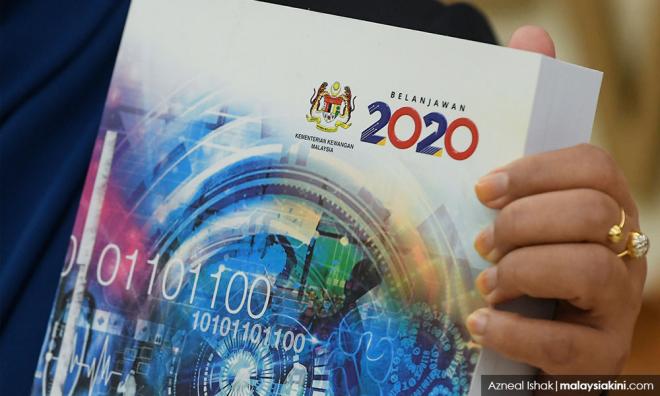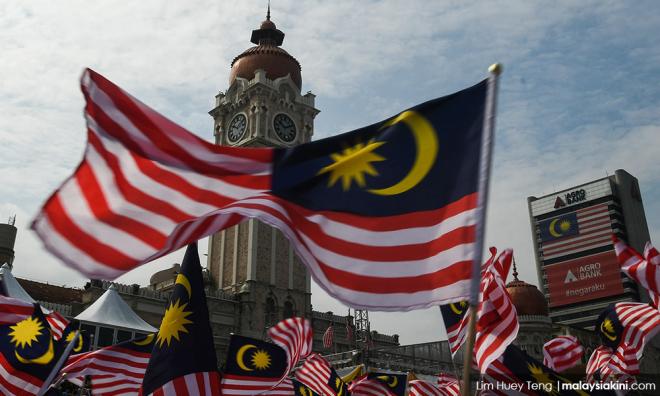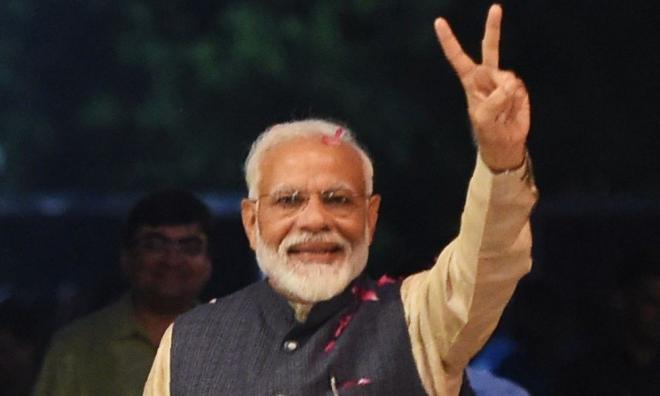
Published by Malaysiakini & Sin Chew images from Malaysiakini.
Prime Minister Narendra Modi ought to be congratulated for winning handsomely in his May 2018 re-election campaign. But the plaudits, for now, stop there.
The media that support him, such as the News X, anchored by Rishabh Gulati, has been broadcasting a clip (nearly five minutes long) that India must support any Hindus in Malaysia that are up in arms against the Prime Minister Tun Dr Mahathir Mohamed.
The reasons offered by the diatribes include punishing Malaysia for supporting Pakistan and for not chastising Islamabad for its support of ostensible terrorist movements against India. Thus India, which is experiencing a trade deficit of merely US$5 billion with Malaysia, should not buy any palm oil from Malaysia.
Instead, all the palm oil which is needed by India to be manufactured into ghee, soap, vegetarian oil and potentially bio-fuel, should be purchased from Indonesia. This is where Modi’s policy goes wrong and has been hijacked by incendiary anchormen such as Gulati.
First and foremost, Gulati affirmed that there is a trade war between the US and China, which judging from his tone of language can deeply affect India too.
That would suggest all trade wars or the sheer weaponisation of trade issues are bad. They raise tariff and non-tariff barriers, and they trigger a dyadic trade relationship that is toxic on the rest of the global value chain, including India. If that is an economic fact, why should India emulate the example of Washington DC and Beijing?
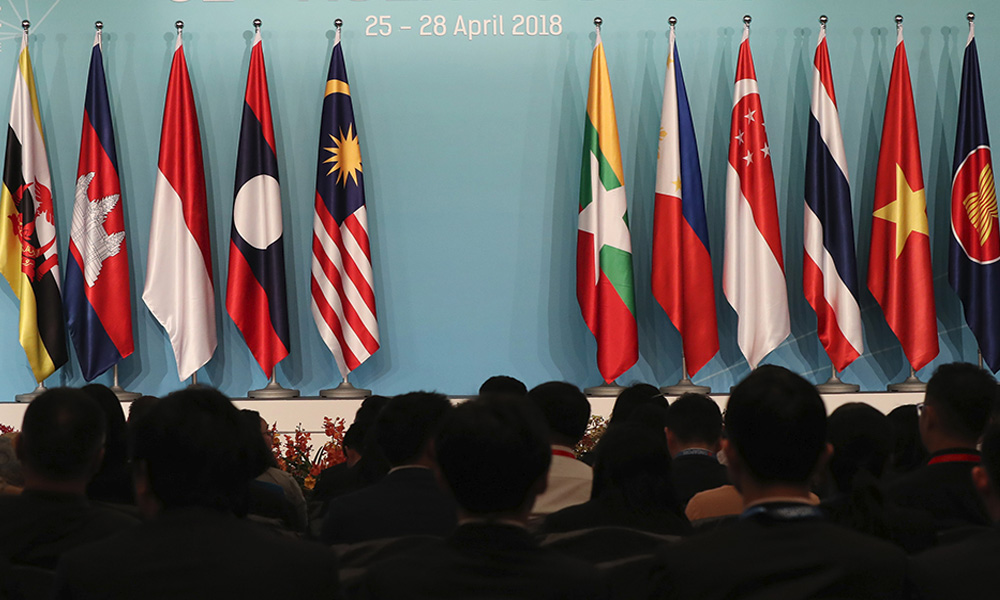
Secondly, perhaps most importantly above all else, there is an unsaid yet practical principle in Asean that countries which want to be a part of the thriving regional block of 680 million people cannot throw their support to any opposition in the region.
Modi has a “Southerly Policy” concerning Asean since 2015 and is a member of the East Asian Summit, a dialogue partner of Asean. India is destroying a key principle of its diplomatic engagement. Not only will the whole of Asean oppose it, but the rest of the East Asian region will see India’s behaviour as the beginning of the use of “hatchet diplomacy”.
Thirdly, the conflict between India and Pakistan is not merely a conventional weapons stand-off but a nuclear eye-to-eye standoff. In such a conflict, the likes of Malaysia are needed as a friendly third party to reduce the tension of the two and not to ratchet up the rivalry of the couplet.
Insisting that Putrajaya must side with New Delhi at all cost suggests a bigger economic juggernaut imposing a zero-sum economic and diplomatic game on not just Malaysia but ultimately, the whole of the region.
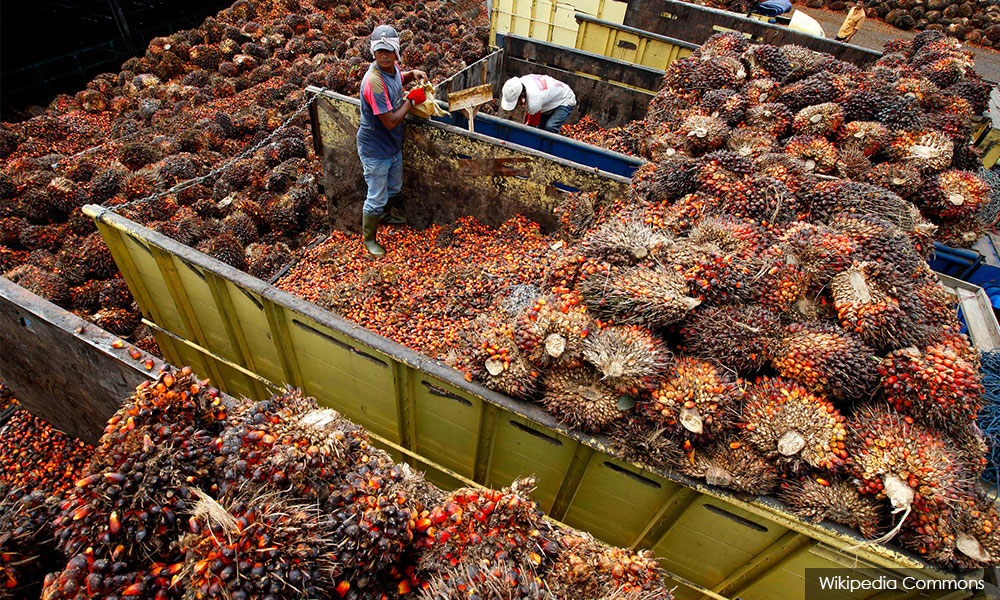
Besides, much of Indonesia’s palm oil is owned and sold by Malaysian companies such as IOI and Genting. Will India, to satisfy its egoistical objectives, be buying selectively only from Indonesian palm oil producers without Malaysian equity and partnership?
The current prices of palm oil are influenced by the consumption pattern of India and China. Indonesia and Malaysia, which together sell 90 percent of the palm oil in the world, do have an understanding not to be pressured by other countries. Instead, it is Indonesia and Malaysia that hold the upper hand as Jakarta and Putrajaya are not necessarily agreeable to New Delhi’s strong-arm tactics.
An Indian foreign policy which seeks to be pro-Asean and pro-East Asia – both of which India is intimately involved in – cannot begin by targeting any one country in the region on sheer political discrimination.
In fact, this is against the practice of the World Trade Organization (WTO), which Malaysia is liable to seek legal redress. An eye for an eye makes the world go blind.
Amidst its Hindu nationalism, New Delhi has become blinded by its electoral victory. If it is not careful, India can end up in a nuclear flash with Pakistan which is what Mahathir, Malaysia and the rest of the world are trying to prevent.
Dr. Rais Hussin is President & CEO of EMIR Research, an independent think tank focused on strategic policy recommendations based upon rigorous research.
刊登在:星洲网 (Sin Chew).
先在此祝贺印度总理莫迪在2018年5月的大选中成功获得连任。但是,欢呼声,就此打住。
支持他的媒体,如NewsX ,由Rishab Gulati主持,播出了一段视频(近5分钟),内容是印度必须支持大马兴都教徒对抗首相敦马哈迪。
视频提供的理由包括惩罚大马支持巴基斯坦,以及没有谴责伊斯兰堡支持针对印度的恐怖主义活动。因此,由于印度与大马的贸易赤字近50亿美元,所以不应该向大马购买棕油。
反之,印度用于制成酥油、肥皂、菜油以及生物燃料的所有棕油,都应该向印尼购买。这就是莫迪政策开始出错的地方,并被诸如Rishab Gulati 等煽风点火的主持人骑劫。
首先,Rishab Gulati肯定了中美之间的贸易战,从他的语气看来,这也可能对印度产生深远的影响。
这显示所有贸易战或将贸易课题彻底武器化都是不好的。他们提高了关税和非关税壁垒,并对全球价值链产生有害的双重贸易关系,包括印度。如果这是事实,那么为何印度要效仿华盛顿和北京?
其次,也许这是最重要的一点,东盟有一条未说却又实用的原则,即如果想要加入拥有6亿8000万人口的区域成为一分子,该国就不能向该区域的任何反对力量表示支持。
莫迪自2015年就对东盟实施“东进政策”,也是东盟对话伙伴东亚峰会的成员。印度正在破坏其外交参与的一项关键原则。不仅整个东盟反对,而是东亚其他区域也将把印度的行为视为“斧头外交”(hatchet diplomacy)的开始。
第三,印度和巴基斯坦之间的冲突不仅是常规武器对峙,而是核武器对峙。在这样的冲突中,需要像大马这样友好的第三方国家来降低两国的紧张关系,而不是加剧对立。
不惜一切代价坚持让布城必须与新德里站在同一阵线,这显示一个更大的经济霸主,不仅对大马,而是对整个区域实施了零和经济和外交博弈。
此外,印尼的棕油大部分是由大马公司如IOI和云顶集团拥有和出售的。为了实现以自我为中心的目标,印度是否会选择性地从没有大马股权和伙伴关系的印尼棕油生产商那里购买棕油?
当前棕油的价格受到印度和中国消费模式的影响。印尼和大马,占全球销售总额的90%,他们拥有的共识是不受其他国家的威胁。反之,是印尼和大马占了上风,因为雅加达和布城不一定同意新德里的强硬手段。
试图寻求亲东盟和亲东亚的印度外交政策──印度密切参与了这两大实体──不能出于纯粹的政治正确而开始针对该区域的任何国家。
实际上,这违背了世界贸易组织(WTO)的做法,大马有权寻求法律途径。以眼还眼只会让世界变盲。
在印度的兴都民族主义中,新德里因其胜选而变盲。如果不谨慎的话,印度可能会与巴基斯坦陷入核危机,这是马哈迪,大马以及全世界都在试图预防的。
莱斯福贤是EMIR Research的总裁兼首席执行官,EMIR Research是一个独立的智囊团,专注于根据严格的研究提出战略政策建议。
